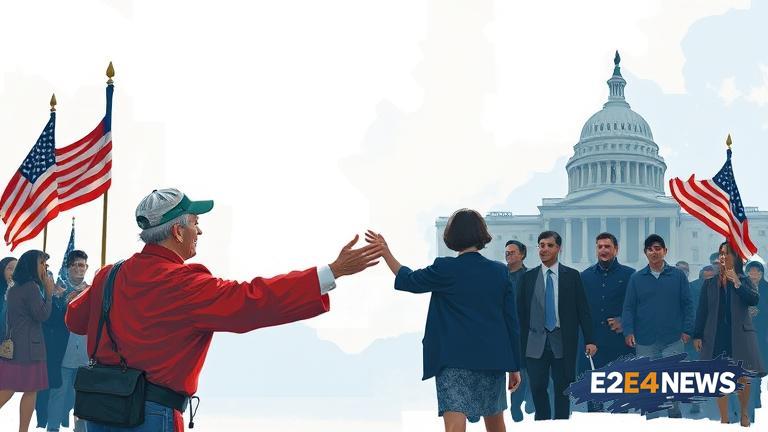In recent years, the world has witnessed a surge in political polarization, with many individuals and groups embracing divisive rhetoric and hostile behavior. This trend has led to a breakdown in civil discourse, making it challenging for people with differing opinions to engage in constructive dialogue. The consequences of this phenomenon are far-reaching, affecting not only personal relationships but also the overall social fabric. As a result, it is essential to address the root causes of political hatred and work towards creating a more inclusive and respectful environment. One of the primary factors contributing to the rise of political polarization is the proliferation of social media, which can amplify extreme views and create echo chambers. Furthermore, the 24-hour news cycle and sensationalized reporting can also fuel the fire of political hatred. To combat this, it is crucial to promote media literacy and critical thinking, enabling individuals to discern fact from fiction and engage in informed discussions. Additionally, fostering empathy and understanding through education and community outreach programs can help to bridge the gap between people from different backgrounds and ideologies. Moreover, leaders and public figures have a significant role to play in promoting civility and respect, as their words and actions can have a profound impact on their followers. It is also important to recognize that political disagreements do not have to be personal, and that it is possible to maintain respectful relationships with those who hold differing views. By prioritizing open communication, active listening, and mutual respect, we can work towards creating a more harmonious and inclusive society. However, this will require a collective effort, with individuals, communities, and institutions all playing a part in promoting a culture of civility and respect. The benefits of such an approach are numerous, ranging from improved mental health and well-being to a more functional and effective political system. Ultimately, by choosing to engage in respectful and constructive dialogue, we can help to break down the barriers that divide us and build a brighter future for all. The era of political polarization is a complex and multifaceted issue, requiring a nuanced and comprehensive response. It is not a problem that can be solved overnight, but rather one that will require sustained effort and commitment from all members of society. As we navigate this challenging landscape, it is essential to remain hopeful and optimistic, recognizing that even small actions can have a significant impact when combined with the efforts of others. By working together and promoting a culture of respect and empathy, we can create a more just and equitable society, where everyone has the opportunity to thrive. The time for change is now, and it is up to each and every one of us to play a part in shaping a brighter future. We must be willing to listen to and learn from others, even when we disagree, and to approach difficult conversations with empathy and understanding. By doing so, we can help to build a more compassionate and inclusive world, where political disagreements do not have to be a source of hatred and division. Instead, we can use our differences as an opportunity for growth and learning, and work towards creating a society that values and celebrates diversity in all its forms. The future of our world depends on our ability to navigate the complexities of political polarization and to find common ground with those who may hold differing views. It will not be easy, but with persistence, dedication, and a commitment to respect and empathy, we can overcome even the most daunting challenges and build a brighter future for all. As we move forward, it is essential to prioritize education and critical thinking, recognizing that an informed and engaged citizenry is the key to a healthy and functioning democracy. We must also be willing to challenge our own assumptions and biases, and to approach difficult issues with a nuanced and open-minded perspective. By doing so, we can help to create a more just and equitable society, where everyone has the opportunity to participate and thrive. The rise of political polarization is a pressing concern, but it is not insurmountable. With collective effort and a commitment to respect and empathy, we can overcome this challenge and build a brighter future for all.





